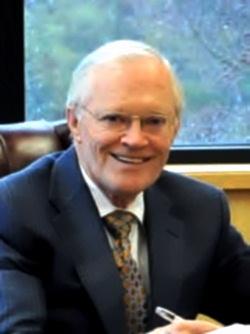Questions and Answers
Question: Scripture describes that Jesus Christ was scourged by Pontius Pilate before His crucifixion (Matthew 27:26; Mark 15:15; John 19:1). Was there any special meaning behind this scourging?
Answer: The Apostle Peter, describing Christ's crucifixion, explains that the Savior "bore our sins in His own body on the tree, that we, having died to sins, might live for righteousness—by whose stripes you were healed" (1 Peter 2:24). Peter's words echo those of the prophet Isaiah, describing the coming Messiah: "But He was wounded for our transgressions, He was bruised for our iniquities; the chastisement for our peace was upon Him, and by His stripes we are healed" (Isaiah 53:5).
What Christ endured was not some ritualized beating. Although no bones were broken (Psalm 34:20; John 19:36), Scripture foretold that, because of the severe scourging, His appearance would be "marred more than any man, and His form more than the sons of men" (Isaiah 52:14).
For what purpose did Jesus Christ endure this terrible beating? Notice His words: "I have come that they may have life, and that they may have it more abundantly" (John 10:10). Eternal life is the gift God will give at the resurrection, but with these words Christ was describing an abundance His followers would have in their physical lives.
Of course, there is nothing more important than the spiritual healing that takes place when Christians receive the Holy Spirit and replace their carnal human nature with the spiritual nature of Christ. But is that all there is to Christ's sacrifice? No! Christ's shed blood paid the penalty for our sin and makes possible the gift of eternal life (Romans 6:23). But his broken body—"His stripes" as symbolized by the bread of which Christians partake at the Passover service (1 Corinthians 11:23-24)—specifically made possible our physical healing.
Eternal spiritual life is a gift that cannot be earned, but those who willfully disobey God and rebel against His law may reject that gift (Hebrews 6:4-6). Similarly, if we obey the physical laws that govern human life, we can expect health. But, if we act contrary to those laws, we can expect sickness. Jesus Christ—the God of the Old Testament (1 Corinthians 10:4)—told the ancient Israelites, "If you diligently heed the voice of the Lord your God and do what is right in His sight, give ear to His commandments and keep all His statutes, I will put none of the diseases on you which I have brought on the Egyptians. For I am the Lord who heals you" (Exodus 15:26).
Scripture confirms that "all have sinned and fall short of the glory of God" (Romans 3:23). We all need healing. When we sin, we ask God for forgiveness, and if we are truly sincere we repent—change our behavior. This principle also applies to our physical healing. God may, for example, heal the emphysema of a long-time tobacco smoker. However, if the one who is healed does not quit smoking, he should not expect God to bless him with further healing. Rather, when we ask for healing we should be diligent in examining ourselves to discern what we might have been doing in violation of the basic laws of health that made us subject to the malady for which we seek healing. We should be willing to change the behaviors that harmed our health, and we should make the effort to do so (1 Corinthians 11:31-32).
What else should we do if we desire divine healing? The Apostle James gave simple instructions: "Is anyone among you sick? Let him call for the elders of the church, and let them pray over him, anointing him with oil in the name of the Lord. And the prayer of faith will save the sick, and the Lord will raise him up. And if he has committed sins, he will be forgiven. Confess your trespasses to one another, and pray for one another, that you may be healed. The effective, fervent prayer of a righteous man avails much" (James 5:14-16). James' encouraging instruction reminds us that being anointed with oil by a true minister of God is a powerful tool for our healing. Furthermore, just as we ought to pray for others, we should not neglect to ask for the prayers of other faithful Christians.
To learn more about divine healing and how you can seek it, read our booklet, Does God Heal Today? You can read it online or request your free copy at our Web site, www.TomorrowsWorld.org, or you may make your request by writing to our Regional Office nearest you (listed on page 30 of this magazine).






